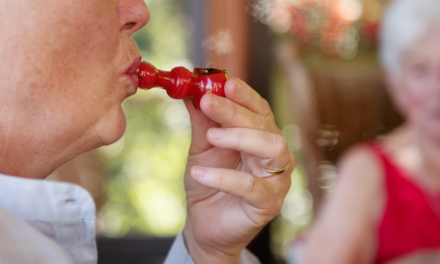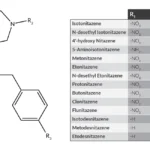Here’s a piece from the Vox website in response to the recent tragic murder spree in Georgia.
Claims of “sex addiction” are a distraction in the Atlanta killings
The writer takes the position that blaming the violence on ‘sex addiction’ — for which the accused had been treated — would draw attention away from the larger issue of hostility towards Asians. That’s reasonable, as we’re told there’s been a dramatic increase since the beginning of the pandemic. Donald Trump’s insistence on calling COVID the “China Virus” no doubt had something to do with that.
Still, I hate to see the article make its point by disparaging the validity of sexual addictions. That’s mostly on the grounds that the designation hadn’t made it into the DSM5.
To me, that isn’t fair. First off, inclusion in the diagnostic manual can take a long time. And the status of ‘sex addiction’ could well change in the coming years.
The DSM is mostly a glossary of terms intended to be used by trained, licensed mental health professionals to identify pathology. As such, it is periodically revised to reflect the state of knowledge. It’s emphatically not a ‘Bible’ for psychiatry, as it’s often mistakenly characterized. The DSM has its strengths, but also its critics within the world of mental health.
That’s why absence from the current edition alone wouldn’t qualify as the last word on whether sex addiction exists. I know respected therapists who would argue, citing evidence, that it does. And that the term as they use it meets the three principal criteria for addiction: compulsive behavior, loss of control, and continuation despite the adverse consequences.
I can think of dozens of patients over the years who would have qualified under that definition. Instead, it went unnoticed.
Of course, as of this point we know very little about the accused’s sexual history, other than what his former roommate at a halfway house has revealed to reporters. He apparently suffered from compulsive behavior that conflicted with the rigid rules around sexual conduct in the religious community where he had been raised. It was a conflict that caused him considerable anguish and distress.
Maybe some day we’ll know the full story. I wouldn’t count on it.
I’m confident that the clinical picture will be complicated. They almost always are. And it still won’t answer the Big Question, which is why he decided to set out on a killing spree on that particular day. Supposedly when caught he was heading to Florida for still another planned assault.
Was it a hate crime based on a racial prejudice or rage at women? Was it partly attributable to religious confusion, or a psychosis? Are other factors involved, as yet to be identified? Who knows? Perhaps he was under the influence of drugs or alcohol, or both.
The fact remains that even severely ill individuals rarely if ever do anything like what Robert Aaron Long decided to do — that is, deliberately set out to murder a large number of total strangers at multiple locations. Even if the psychiatrists reach a consensus, our questions will remain unanswered.













